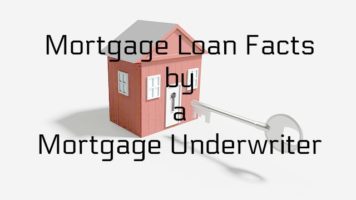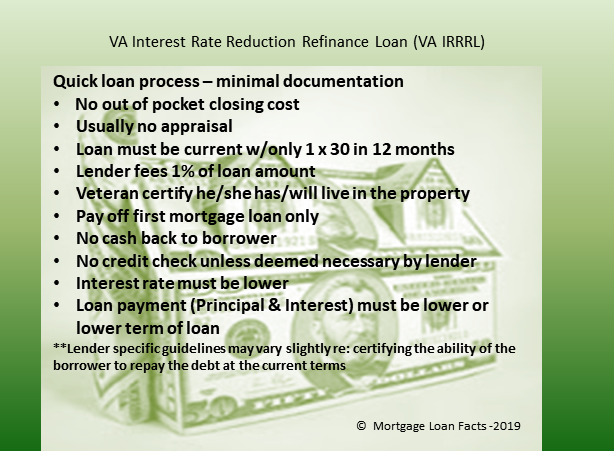The Ultimate Guide to FHA Mortgage Loans- What You Need To Know…
Buying a home can be overwhelming, especially if you’re a first-time homebuyer. With so many mortgage options available, it’s tough to know which one is the best fit for you. One popular mortgage option that you may have heard of is the FHA mortgage.
The Federal Housing Administration (FHA) insures these loans, making them a popular choice for those who may not have a perfect credit score or a large down payment. But what exactly is an FHA mortgage, and how does it work?
Benefits of FHA Mortgages
• FHA mortgages offer several benefits to borrowers. One of the most significant benefits is the low down payment requirement, which is typically 3.5% of the home’s purchase price.
• Another benefit of an FHA mortgage is that it’s sometimes easier to qualify for than a conventional mortgage. However, that all depends upon the applicant’s total credit and financial status. *note below
Any unusual circumstances regarding credit, employment, or income may require additional documentation. This will include verifying non-traditional credit if this is your first time applying for a loan.
• FHA mortgages have more lenient credit score requirements, making them a popular choice for those who may not have a perfect credit score. The overall credit score requirements are lower. However, the Direct Endorsement (DE) Underwriter must be certain that you are a reliable credit risk for the duration of the loan. The entire mortgage file must be within minimal risk of default.
• FHA mortgages offer more flexibility when it comes to employment history and debt-to-income ratios. The housing ratio and total debt to income for FHA mortgages depend again upon the full aspects of the applicant’s credit, assets, and entire evaluated file.
If you’ve had a gap in employment and you are now working in a career that was similar to the prior job or have a higher education level, you may still be able to qualify.
When you have a higher debt-to-income ratio, but you have sufficient assets for your downpayment with two or more months of reserves; you may still be able to qualify for an FHA mortgage.
• Lastly, FHA mortgages offer competitive interest rates. The interest rates for an FHA mortgage are slightly lower than a conventional mortgage, at this writing. This means that you can save money over the life of the loan by choosing an FHA mortgage over a conventional mortgage.
FHA Mortgage Requirements- with more details regarding credit scores and DTI
• To qualify for an FHA mortgage, there are specific requirements. One of the requirements is that you must have a minimum credit score of 580. However, if your credit score is between 500 and 579, you may still be able to qualify for an FHA mortgage. However, you may need to make a larger down payment. And, as stated above, the entire file must be saleable and constitute sound lending practices.
• Another requirement for an FHA mortgage is that you must have a steady employment history. Typically, you’ll need to have been employed for at least two years with the same employer or in the same industry. There may be circumstances where exceptions may be possible.
•Additionally, you’ll need to have a debt-to-income ratio of no more than 43%. This means that your monthly debt payments cannot exceed 43% of your monthly income. *There are also exceptions to this if and when the entire mortgage file meets allowable standards for a good-quality loan.
• Finally, there are specific property requirements for an FHA mortgage. The home you’re purchasing must be your primary residence, and it must meet specific safety and livability standards. Additionally, the home must meet specific appraisal requirements to ensure that it’s worth the purchase price.
FHA Loan Limits
FHA mortgages have specific loan limits that vary by county. The loan limits are based on the median home prices in the area. For 2023, the FHA loan limits range from $472,030 to $907,900 depending on the county. Higher limits for high-cost areas. These loan limits are designed to ensure that FHA mortgages are available to borrowers at all income levels and in all areas.
Types and Terms of FHA Mortgages
The most popular term of FHA mortgage is the 30-year fixed-rate mortgage. This mortgage has a fixed interest rate for the life of the loan and is the most stable option for borrowers. Another term of FHA mortgage is the 15-year fixed-rate mortgage, which has a shorter loan term but a lower interest rate. This mortgage is ideal for borrowers who want to pay off their mortgage quickly and save money on interest.
Additionally, there are FHA adjustable-rate mortgages (ARMs). These mortgages have a fixed interest rate for an initial period, typically five or seven years, and then the interest rate adjusts annually. This type of mortgage is ideal for borrowers who plan to sell their home or refinance before the interest rate adjusts.
FHA Mortgage Insurance
FHA mortgages require mortgage insurance, which is designed to protect the lender in case the borrower defaults on the loan. There are two types of mortgage insurance for an FHA mortgage: upfront mortgage insurance premium (UFMIP) and annual mortgage insurance premium (MIP).
UFMIP is a one-time fee that is typically rolled into the loan amount. The amount of UFMIP you’ll pay depends on the loan amount and the term of the loan. In 2023, the UFMIP rate for an FHA mortgage is still 1.75% of the loan amount.
MIP (annual mortgage insurance) is an ongoing fee that is added to your monthly mortgage payment. The amount of MIP you’ll pay depends on the loan amount, loan term, and loan-to-value (LTV) ratio.
The LTV ratio is the amount of the loan compared to the value of the home. In general, the higher the LTV ratio, the higher the MIP will be.
How to Apply for an FHA Mortgage
To apply for an FHA mortgage, you’ll need to find an FHA-approved lender. You can search for FHA-approved lenders online or through your local housing authority. Once you’ve found a lender, you’ll need to provide them with financial documentation, such as your income, employment history, and credit score.
The lender will then review your application and determine if you qualify for an FHA mortgage. If you’re approved, the lender will provide you with a pre-approval letter, which you’ll need when making an offer on a home.
Most lenders/mortgagees use automated underwriting systems in the initial underwriting process. These lenders/mortgagees must be qualified and licensed to make FHA government loans with the Guarantor of Ginnie Mae. If the automated underwriting system does NOT approve the loan, they must do a MANUEL underwriting process.
*In my experience as a Direct Endorsement Underwriter who had to be licensed, it was always necessary to make sure the file is saleable to the investor and meets HUD’s entire credit guidelines. It is detailed processing and underwriting. They are not going to just give you a loan.
FHA Mortgage Appraisal Process
Once you’ve found a home and made an offer, the FHA mortgage process begins. One of the final steps is to have the home appraised to ensure that it’s worth the purchase price. The appraiser will also check to make sure that the home meets specific safety and livability standards.
After the appraisal, the lender will finish the underwriting process with a review of the appraisal. The appraisal must meet all of the FHA mortgage requirements as well.
If the initial credit underwriting was approved and the appraisal is approved, the lender will provide the final underwriting disclosures. The final disclosures will outline the closing cost and fees associated with the loan.
Finally, a closing Attorney/Agent will work up the final figures. There are Attorney fees and title search fees that are associated with the closing documents. The closing costs for an FHA mortgage typically range from 3% to 6% of the loan amount.
FHA Mortgage Rates and Terms
FHA mortgage rates and terms vary depending by the lender and the borrower’s qualifications. However, FHA mortgages typically offer competitive interest rates and flexible terms.
The terms for an FHA mortgage typically range from 15 to 30 years. The most popular term for an FHA mortgage is the 30-year fixed-rate mortgage, which offers a stable interest rate for the life of the loan.
Pros and Cons of FHA Mortgages
Like any mortgage option, there are pros and cons to an FHA mortgage. One of the most significant pros is the low down payment requirement, which makes it easier for first-time homebuyers to purchase a home. Additionally, FHA mortgages offer more lenient credit score requirements and more flexibility when it comes to employment history and debt-to-income ratios.
However, there are also cons to an FHA mortgage. One of the cons is the UP mortgage insurance requirement, which is added to the total loan amount. Additionally, FHA mortgages have specific property requirements, which may limit your home options.
Frequently Asked Questions about FHA Mortgages
1. Can I use an FHA mortgage to purchase a second home or investment property?
No, FHA mortgages can only be used to purchase a primary residence.
2. Can I refinance my current mortgage into an FHA mortgage?
Yes, you can refinance your current mortgage into an FHA mortgage as long as you meet the FHA mortgage requirements.
3. Can I use an FHA mortgage to purchase a fixer-upper?
Yes, you can use an FHA mortgage to purchase a fixer-upper. However, you’ll need to use an FHA 203k loan, which is designed for home renovations.
4. How long does it take to close an FHA mortgage?
The FHA mortgage process typically takes between 30 and 45 days, depending on the lender and the borrower’s qualifications.
Conclusion
An FHA mortgage is for anyone and not only for the low-income, low-credit borrower. However, it is most beneficial to those who are first-time homebuyers with little credit and less savings.



